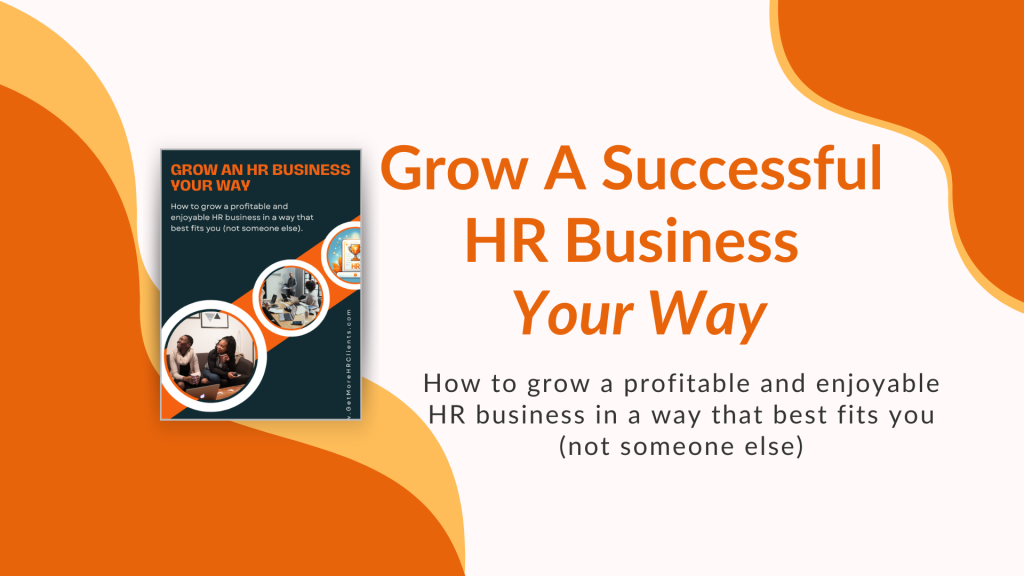I am often asked on my HR marketing blog about how to make more HR tech sales and thought it might be useful to hear from someone I respect in the world of B2B HR SaaS sales: Pat Lavergne.
As the former Head of Sales in an HR-Tech SaaS company, Pat now coaches HR startups on how to find and close deals on repeat through a predictable sales process.
He helps his clients identify who they should sell too, figure out where and how they will approach them, and then finally, how to close the deal.
Not a fan of the latest sales trends and manipulation tactics, Pat is your quintessential people person who understands that when you get curious about others and genuinely want to help out, it’s easy to enter into business relationships.
Let’s talk HR tech sales . . .
While you’re here, join my free HR Tech information group (or my free HR consultant group).
Business Value Expert (Pat Laverge) On How To Sell HR SaaS/Tech Services
During a very interesting discussion on how to sell HR software to companies, I asked Pat about the right type of sales process to use, about sales scripts, what to do when a sales prospect goes dark, and more.

Let’s get into it.
Over to Pat . . .
Q1. What is a good overall sales process to use if you are an HR SaaS business or an HR Consultant?
A good sales process is a simple sales process. Also, you want it to allow scaling to support your company growth.
I believe building a sound sales process is messy at first. This is when you usually don’t have a lot of inbound leads and where you should experiment different lead generation channels with the help of Business Development Representatives (or yourself if you don’t have a sales team yet).
Eventually, your team gets better at answering the important questions:
- Who’s our ideal customer?
- Where does he hang out?
- How do we get in touch with him?
- What’s the big problem he needs fixed?
- How do we go about that?
At that point, the sales process evolves to allow for scaling. You start refining, automatizing and specializing your team.
Q2. What’s the best way to run a sales call or meeting? Should I script my sales calls?
No one wants to talk to someone who’s following a script. Also, if done right, every sales call will be unique as you want to tailor it to whoever’s in front of you. Scripts are great for training purposes and that’s pretty much it.
The ingredients of a great sales call which hold true across all industries and types of people are:
- Gaining a solid understanding of the problem the other person is trying to solve.
- Identifying what does the desired state look like once the problem is fixed.
- Showing how your offer will help them move from problem to solution.
In order to achieve this, you’ll need a hearty dose of curiosity and be prepared to listen more than you talk.
Q3. How to convert interest into engagement (ie. into a paying clients) and get the prospect to take action and get started? What if there are other decision-makers back in their office?
If your product/service truly removes a problem for your client, there isn’t an objection that will stand in your way.
Early on, you should aim to understand the business context of your prospect to understand the following:
- What’s their buying process like?
- Have they already purchased a solution similar to yours?
- If they were to move on fixing that problem, what’s the timeline on that?
Investing in qualifying your prospects from the get go will insure you don’t waste your time when there’s no potential for a partnership.
Q4. What to do when a client ‘goes dark’ and you don’t hear back from them?
Follow-up with them.
By phone, email, Linkedin, Facebook.
Whatever they use.
Don’t be afraid of doing that.
To reduce the amount of prospects going dark on you, set clear next steps at the end of each interaction with them.
You’ll feel much better when you reach out that 3rd time.
5. How to attract the right type of clients? The ones who value what we offer?
Be OK with saying no to the wrong type of clients (deep down, you know who those are).
Also don’t devalue yourself and your offering by accepting to lower your prices.
The right type of client is happy to pay full price.
6. Final tip?
One thing that always served me well was to strive to provide value at every interaction.
This forced me to stop talking about myself and become much more interesting to my prospects by focusing on their needs, their pains, their fears as well as their hopes and dreams.
Conclusion – How To Make More HR Tech Sales
Excellent insights from Pat there.
If you’d like some advice from Pat on how to position your company for greater success, you can reach him here: PatLavergne.com.
Are you a consultant in the Human Resources industry?
Are you in an HR SaaS/Tech company?





